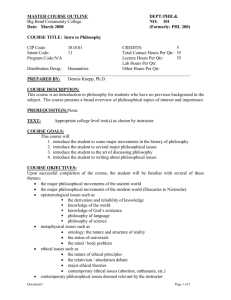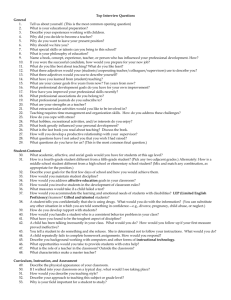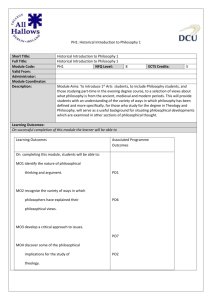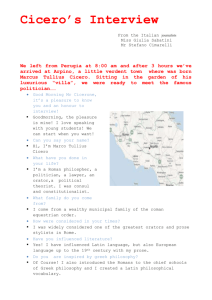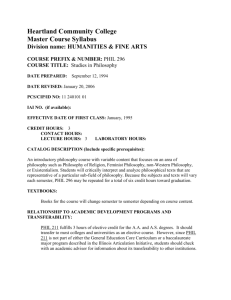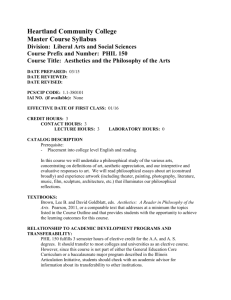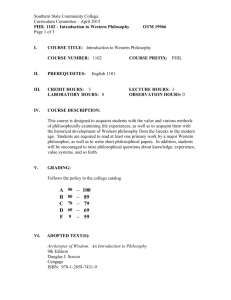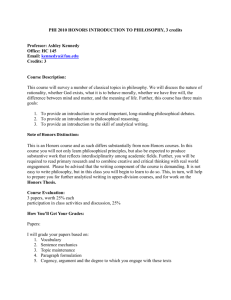Why Teach Philosophy to Gifted Children (Word 2007, 35 KB)
advertisement
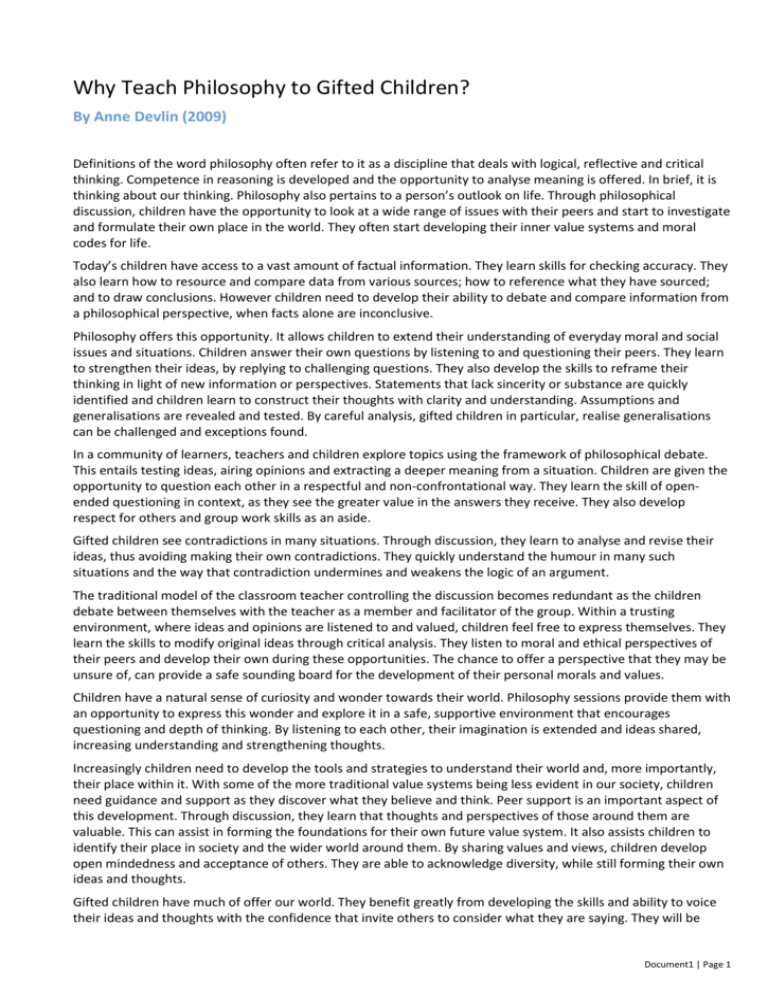
Why Teach Philosophy to Gifted Children? By Anne Devlin (2009) Definitions of the word philosophy often refer to it as a discipline that deals with logical, reflective and critical thinking. Competence in reasoning is developed and the opportunity to analyse meaning is offered. In brief, it is thinking about our thinking. Philosophy also pertains to a person’s outlook on life. Through philosophical discussion, children have the opportunity to look at a wide range of issues with their peers and start to investigate and formulate their own place in the world. They often start developing their inner value systems and moral codes for life. Today’s children have access to a vast amount of factual information. They learn skills for checking accuracy. They also learn how to resource and compare data from various sources; how to reference what they have sourced; and to draw conclusions. However children need to develop their ability to debate and compare information from a philosophical perspective, when facts alone are inconclusive. Philosophy offers this opportunity. It allows children to extend their understanding of everyday moral and social issues and situations. Children answer their own questions by listening to and questioning their peers. They learn to strengthen their ideas, by replying to challenging questions. They also develop the skills to reframe their thinking in light of new information or perspectives. Statements that lack sincerity or substance are quickly identified and children learn to construct their thoughts with clarity and understanding. Assumptions and generalisations are revealed and tested. By careful analysis, gifted children in particular, realise generalisations can be challenged and exceptions found. In a community of learners, teachers and children explore topics using the framework of philosophical debate. This entails testing ideas, airing opinions and extracting a deeper meaning from a situation. Children are given the opportunity to question each other in a respectful and non-confrontational way. They learn the skill of openended questioning in context, as they see the greater value in the answers they receive. They also develop respect for others and group work skills as an aside. Gifted children see contradictions in many situations. Through discussion, they learn to analyse and revise their ideas, thus avoiding making their own contradictions. They quickly understand the humour in many such situations and the way that contradiction undermines and weakens the logic of an argument. The traditional model of the classroom teacher controlling the discussion becomes redundant as the children debate between themselves with the teacher as a member and facilitator of the group. Within a trusting environment, where ideas and opinions are listened to and valued, children feel free to express themselves. They learn the skills to modify original ideas through critical analysis. They listen to moral and ethical perspectives of their peers and develop their own during these opportunities. The chance to offer a perspective that they may be unsure of, can provide a safe sounding board for the development of their personal morals and values. Children have a natural sense of curiosity and wonder towards their world. Philosophy sessions provide them with an opportunity to express this wonder and explore it in a safe, supportive environment that encourages questioning and depth of thinking. By listening to each other, their imagination is extended and ideas shared, increasing understanding and strengthening thoughts. Increasingly children need to develop the tools and strategies to understand their world and, more importantly, their place within it. With some of the more traditional value systems being less evident in our society, children need guidance and support as they discover what they believe and think. Peer support is an important aspect of this development. Through discussion, they learn that thoughts and perspectives of those around them are valuable. This can assist in forming the foundations for their own future value system. It also assists children to identify their place in society and the wider world around them. By sharing values and views, children develop open mindedness and acceptance of others. They are able to acknowledge diversity, while still forming their own ideas and thoughts. Gifted children have much of offer our world. They benefit greatly from developing the skills and ability to voice their ideas and thoughts with the confidence that invite others to consider what they are saying. They will be Document1 | Page 1 challenged because their ideas may not fit what is expected of them. They may feel alone in their thoughts. Through facilitated discussions and debate, this aloneness can be lessened. Philosophical debating skills provide them with the tools to present their ideas in a powerful and non-threatening way. It provides them with the opportunity to search for extra meaning and extend their ideas. In sharing their ideas and gaining acceptance amongst their peers, self-esteem is built and their identity is further developed. Their sense of their own worth is increased and they have life long skills and strategies. The confidence they gain from learning to express themselves with clarity and fluency will help them make their own way in our complex world. Anne runs Philosophy and Social Skills sessions for children in Christchurch. For more information Ph 03 366 8055. Document1 | Page 2
